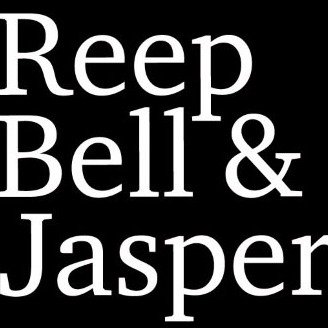Best Nonprofit & Charitable Organizations Lawyers in Missoula
Share your needs with us, get contacted by law firms.
Free. Takes 2 min.
List of the best lawyers in Missoula, United States
About Nonprofit & Charitable Organizations Law in Missoula, United States
Nonprofit and charitable organizations in Missoula, United States, play a significant role in supporting various causes and communities. These organizations range from small local charities to large nonprofits with international reach. The legal framework governing them involves specific regulations that ensure they operate ethically and effectively, while maintaining their tax-exempt status. This area of law encompasses the formation, governance, and dissolution of these entities, alongside compliance with state and federal laws, including IRS regulations.
Why You May Need a Lawyer
Engaging a lawyer specializing in nonprofit and charitable organizations can be crucial in several situations:
- Forming a nonprofit organization and obtaining tax-exempt status.
- Understanding and adhering to compliance and regulatory requirements.
- Drafting and reviewing governance documents like bylaws and conflict of interest policies.
- Managing contracts and ensuring lawful fundraising practices.
- Addressing employment law issues related to volunteers or staff.
- Handling potential mergers or collaborations with other nonprofits.
- Responding to audits or investigations by state authorities or the IRS.
Local Laws Overview
In Missoula, nonprofits must comply with Montana state laws and federal regulations. Some key aspects include:
- Incorporation and Governance: Nonprofits must file Articles of Incorporation with the Montana Secretary of State and adopt bylaws that comply with state laws.
- Tax Exemption: To receive federal tax-exempt status, nonprofits must apply to the IRS under Section 501(c)(3). Montana does not have a separate application process for state tax exemption.
- Charitable Solicitation: Organizations must register with the Montana Attorney General's Office before soliciting donations within the state.
- Reporting and Compliance: Annual reports must be submitted to the Secretary of State and IRS Form 990 to maintain good standing and tax-exempt status.
Frequently Asked Questions
How do I start a nonprofit organization in Missoula?
You need to file Articles of Incorporation with the Montana Secretary of State, draft bylaws, and apply for an Employer Identification Number (EIN) from the IRS. Subsequently, you can apply for tax-exempt status under Section 501(c)(3).
What are the benefits of becoming a 501(c)(3) organization?
Obtaining 501(c)(3) status allows an organization to be exempt from federal income tax, accept tax-deductible donations, and apply for grants available only to tax-exempt organizations.
Are there specific charitable solicitation rules in Montana?
Yes, nonprofits must register with the Montana Attorney General's Office if they plan to solicit donations from the public. They must also renew this registration annually.
What are the ongoing compliance requirements for nonprofits in Montana?
Nonprofits must file annual reports with the Montana Secretary of State and provide the IRS Form 990 annually. They must also comply with state and federal laws governing nonprofit operations.
Can a nonprofit pay its directors or board members?
Typically, board members serve voluntarily. However, they can be reimbursed for direct expenses. Any payments beyond this must be carefully documented and justified to avoid conflicts of interest.
What are bylaws, and why are they important?
Bylaws are the rules governing the internal management of an organization. They are crucial for ensuring consistency in operations, decision-making processes, and compliance with legal requirements.
Can a nonprofit change its mission or bylaws?
Yes, but changes must be approved according to the procedures outlined in the bylaws and may require filing updates with the state and IRS.
What is the difference between a public charity and a private foundation?
A public charity typically derives most re venues from the general public, whereas a private foundation usually receives funds from a single source, such as an individual or family.
Are volunteers considered employees in a nonprofit?
No, volunteers are not employees. It's important to clearly define roles to ensure legal compliance concerning labor laws.
What steps should be taken if a nonprofit is dissolving?
The organization must take specific legal and administrative steps, including notifying the state, settling debts, and distributing any remaining assets according to state and federal laws.
Additional Resources
Consider reaching out to the following resources for more information and assistance:
- Montana Nonprofit Association: Provides resources and guidance for running effective nonprofits.
- Montana Secretary of State: For incorporation and annual filing information.
- Montana Attorney General's Office: For charitable solicitation requirements and nonprofit accountability.
- Internal Revenue Service (IRS): For tax-exempt status applications and reporting requirements.
Next Steps
If you need legal assistance in navigating nonprofit and charitable organization laws in Missoula, consider the following steps:
- Identify your specific legal needs, whether it's forming a new nonprofit, compliance issues, or another area.
- Consult with a lawyer specializing in nonprofit law in Montana to ensure comprehensive and compliant advice.
- Collect all pertinent documents and information before your consultation to make the process smoother.
- Consider attending workshops or seminars offered by the Montana Nonprofit Association for additional guidance and networking opportunities.
Lawzana helps you find the best lawyers and law firms in Missoula through a curated and pre-screened list of qualified legal professionals. Our platform offers rankings and detailed profiles of attorneys and law firms, allowing you to compare based on practice areas, including Nonprofit & Charitable Organizations, experience, and client feedback.
Each profile includes a description of the firm's areas of practice, client reviews, team members and partners, year of establishment, spoken languages, office locations, contact information, social media presence, and any published articles or resources. Most firms on our platform speak English and are experienced in both local and international legal matters.
Get a quote from top-rated law firms in Missoula, United States — quickly, securely, and without unnecessary hassle.
Disclaimer:
The information provided on this page is for general informational purposes only and does not constitute legal advice. While we strive to ensure the accuracy and relevance of the content, legal information may change over time, and interpretations of the law can vary. You should always consult with a qualified legal professional for advice specific to your situation.
We disclaim all liability for actions taken or not taken based on the content of this page. If you believe any information is incorrect or outdated, please contact us, and we will review and update it where appropriate.













